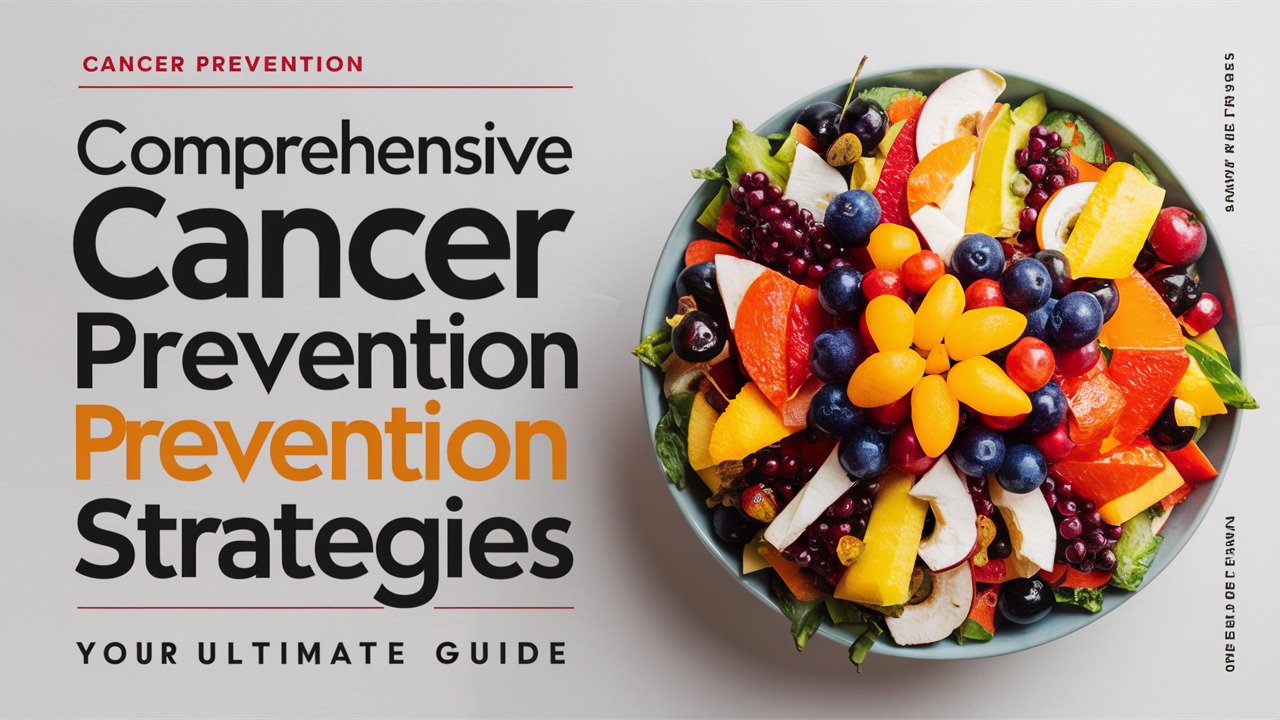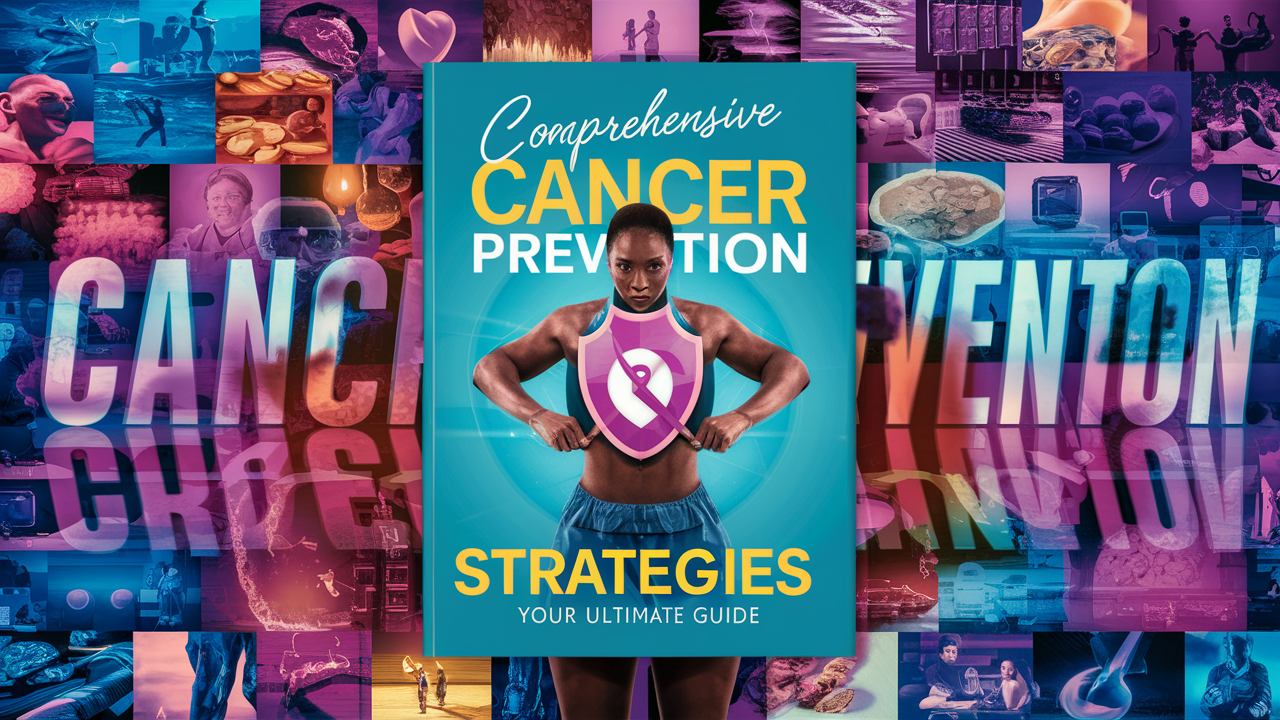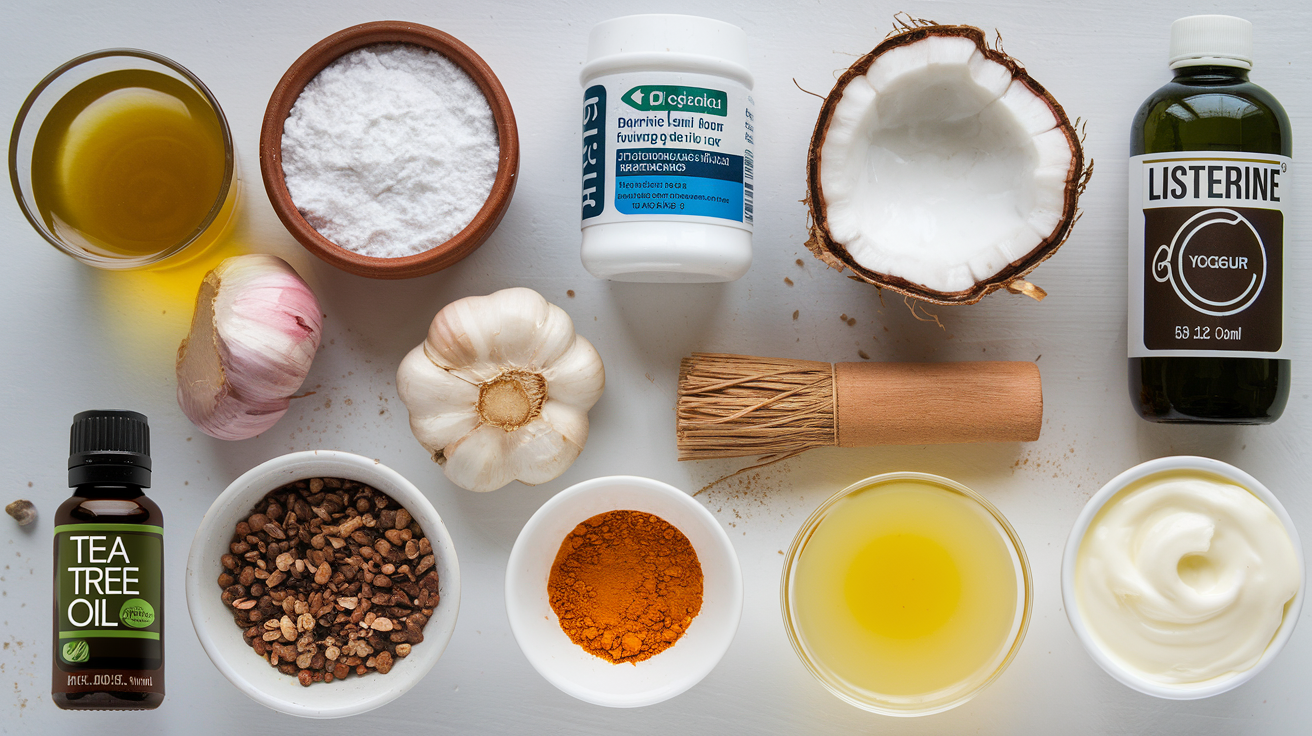Discover the ultimate guide to comprehensive cancer prevention and treatment
Cancer prevention is paramount in the fight against one of the leading causes of death worldwide. While some cancer risk factors such as genetics and environmental exposures are beyond our control, many can be mitigated through lifestyle and behavioral changes. This guide delves into comprehensive cancer prevention strategies, providing detailed insights into actionable steps you can take to reduce your risk.
Understanding Cancer Risk Factors
Cancer risk factors are typically categorized into non-modifiable and modifiable factors. Recognizing these factors and understanding their implications can empower individuals to take proactive measures in cancer prevention.
1. Genetics and Family History:
Certain cancers are strongly influenced by genetic predisposition. For example, mutations in the BRCA1 and BRCA2 genes significantly increase the risk of breast and ovarian cancers. Knowing your family history of cancer can be a powerful tool in assessing your risk and guiding preventive measures. Genetic counseling and testing may be advisable for individuals with a strong family history of cancer, enabling early detection and intervention strategies tailored to their genetic profile.
2. Age and Gender:
Age is a significant risk factor for cancer, with the majority of cases diagnosed in individuals over 50. Gender also influences cancer risk; for instance, prostate cancer predominantly affects men, while breast cancer is more common in women. Understanding these demographic factors can help prioritize screening and preventive measures for those at higher risk.
3. Environmental Exposures:
Exposure to carcinogens, such as tobacco smoke, radiation, and industrial chemicals, is a well-established risk factor for cancer. Occupational hazards and air pollution further contribute to cancer incidence. Reducing exposure to these harmful agents through lifestyle choices and advocating for cleaner environments can significantly lower cancer risk.
4. Lifestyle Choices:
Lifestyle factors play a crucial role in cancer prevention. Smoking, diet, physical activity, and alcohol consumption are key modifiable behaviors that can significantly impact cancer risk. By adopting healthier lifestyle choices, individuals can reduce their susceptibility to various cancers.
Adopting a Healthy Diet
A nutrient-rich, balanced diet is fundamental to cancer prevention. Dietary choices can either increase or decrease the risk of cancer, making it essential to understand and implement healthy eating habits.
1. Fruits and Vegetables:
Consuming a variety of fruits and vegetables provides essential vitamins, minerals, and antioxidants that protect against cancer. Aim for at least five servings of fruits and vegetables daily. Specific vegetables like broccoli, Brussels sprouts, and kale contain glucosinolates, which have been shown to inhibit the growth of cancer cells.
2. Whole Grains and Fiber:
Whole grains, such as brown rice, oats, and quinoa, are rich in fiber, which aids in maintaining a healthy digestive system and reducing the risk of colorectal cancer. The American Institute for Cancer Research recommends consuming at least 25-30 grams of fiber daily from a variety of sources including fruits, vegetables, and legumes.
3. Limiting Red and Processed Meats:
High consumption of red and processed meats is linked to an increased risk of colorectal and stomach cancers. Limiting red meat intake to no more than 18 ounces per week and avoiding processed meats like sausages, bacon, and deli meats can lower cancer risk.
4. Healthy Fats:
Incorporating healthy fats from sources such as avocados, nuts, seeds, and olive oil is beneficial. Omega-3 fatty acids, found in fatty fish like salmon and mackerel, possess anti-inflammatory properties that may reduce cancer risk.
5. Avoiding Sugary and Processed Foods:
Foods high in sugar and refined carbohydrates can lead to obesity, a known risk factor for several cancers. Limiting sugary drinks, snacks, and highly processed foods can help maintain a healthy weight and reduce cancer risk.

Maintaining a Healthy Weight
Maintaining a healthy weight is crucial in reducing the risk of cancer. Obesity is associated with an increased risk of several cancers, including breast, colorectal, endometrial, and pancreatic cancers. Here are strategies to achieve and maintain a healthy weight:
1. Regular Physical Activity:
Engage in at least 150 minutes of moderate-intensity or 75 minutes of vigorous-intensity exercise per week. Activities like walking, cycling, swimming, and strength training help maintain a healthy weight and reduce cancer risk. Regular physical activity not only aids in weight management but also has independent benefits in reducing cancer risk through hormonal and immune system modulation.
2. Balanced Diet:
Following the dietary guidelines mentioned earlier ensures a nutrient-dense diet that supports a healthy weight. Focus on portion control and mindful eating to avoid overeating. Eating a balanced diet rich in whole foods and low in processed foods can prevent excessive weight gain and associated cancer risks.
3. Monitor Body Mass Index (BMI):
Regularly track your BMI to ensure it falls within the healthy range (18.5-24.9). Periodic health check-ups and consultations with healthcare providers can help monitor and manage weight effectively. Keeping a healthy BMI is associated with a lower risk of cancer, particularly those related to hormonal imbalances like breast and endometrial cancers.
4. Behavioral Strategies:
Adopt behavioral strategies such as setting realistic goals, keeping a food diary, and seeking support from healthcare professionals or weight loss programs. Cognitive-behavioral approaches can help change unhealthy eating patterns and promote sustained weight loss.
Discover our top-rated supplements designed to support cancer prevention and enhance your overall health.
Avoiding Tobacco and Limiting Alcohol
Tobacco use and excessive alcohol consumption are significant risk factors for cancer. Reducing or eliminating these behaviors can drastically decrease cancer risk.
1. Tobacco Cessation:
Quitting smoking is the most effective way to reduce cancer risk. Tobacco use is linked to cancers of the lung, mouth, throat, esophagus, pancreas, bladder, and more. Seeking support through smoking cessation programs, medications, and counseling can facilitate quitting. Nicotine replacement therapies and prescription medications like varenicline can double the chances of successful cessation.
2. Avoid Secondhand Smoke:
Exposure to secondhand smoke increases the risk of lung cancer and other respiratory diseases. Avoid environments where smoking is prevalent and support smoke-free policies. Protecting children and non-smokers from secondhand smoke can prevent numerous cancer cases.
3. Limit Alcohol Intake:
Alcohol consumption is associated with cancers of the mouth, throat, esophagus, liver, breast, and colon. Limiting alcohol intake to no more than one drink per day for women and two drinks per day for men can reduce cancer risk. Alcohol’s role in cancer development is linked to its metabolite, acetaldehyde, a known carcinogen, and its ability to increase estrogen levels.
Check out on the following post
Regular Screenings and Vaccinations
Regular cancer screenings and vaccinations play a vital role in early detection and prevention. Early detection through screening can identify cancers at a more treatable stage, improving outcomes.
1. Breast Cancer Screening:
Women should begin regular mammograms at age 50 and continue every two years. Those with a family history or genetic predisposition may need earlier and more frequent screenings. Mammography can detect breast cancer before symptoms appear, leading to earlier and more effective treatment.
2. Colorectal Cancer Screening:
Both men and women should start colorectal cancer screening at age 45. Options include colonoscopy, fecal occult blood test (FOBT), and sigmoidoscopy. Colonoscopies can remove precancerous polyps, preventing colorectal cancer from developing.
3. Cervical Cancer Screening:
Women should begin Pap tests at age 21 and continue every three years. HPV testing can be done concurrently starting at age 30. The Pap test can detect precancerous changes in cervical cells, allowing for early intervention.
4. Prostate Cancer Screening:
Men should discuss the benefits and risks of prostate cancer screening with their healthcare provider starting at age 50, or earlier for those at higher risk. Prostate-specific antigen (PSA) tests can help detect prostate cancer early, although the decision to screen should be individualized.
5. Vaccinations:
Vaccinations against hepatitis B and human papillomavirus (HPV) can prevent liver and cervical cancers, respectively. Ensuring children receive these vaccines according to the recommended schedule is crucial. The HPV vaccine can prevent infections with high-risk HPV strains responsible for cervical, anal, and oropharyngeal cancers.
Reducing Environmental Exposures
Minimizing exposure to environmental carcinogens is essential for cancer prevention. Practical steps can significantly reduce cancer risk from environmental sources.

1. Sun Protection:
Protect your skin from harmful UV radiation by using sunscreen with SPF 30 or higher, wearing protective clothing, and avoiding peak sun hours. Regularly check your skin for changes and consult a dermatologist for any concerns. Skin cancer, including melanoma, can be largely prevented with adequate sun protection.
2. Radon Testing:
Test your home for radon, a colorless, odorless gas that can increase the risk of lung cancer. Radon mitigation systems can reduce indoor radon levels. Radon exposure is the second leading cause of lung cancer after smoking.
3. Safe Use of Chemicals:
Limit exposure to harmful chemicals in household products, pesticides, and industrial environments. Use protective gear and follow safety guidelines when handling chemicals. Reducing exposure to known carcinogens in the workplace and home can lower cancer risk.
4. Air Quality:
Improve indoor air quality by using air purifiers, avoiding tobacco smoke, and ensuring proper ventilation. Reduce outdoor air pollution by supporting clean energy initiatives and using public transportation. Poor air quality is linked to lung cancer and other respiratory diseases.
Check out on the following post
Mental Health and Stress Management
Chronic stress and poor mental health can indirectly increase cancer risk by leading to unhealthy behaviors and weakening the immune system. Managing stress effectively is a crucial component of overall health and cancer prevention.
1. Stress Reduction Techniques
Practice stress-reducing techniques such as mindfulness, meditation, yoga, and deep breathing exercises. These practices can lower cortisol levels and improve overall well-being. Chronic stress can suppress immune function and promote cancer growth, making stress management essential.
2. Support Systems:
Maintain strong social connections with family, friends, and support groups. Emotional support can help manage stress and improve mental health.
3. Professional Help:
Seek help from mental health professionals if experiencing chronic stress, anxiety, or depression. Therapy and counseling can provide coping strategies and support
4. Healthy Lifestyle:
Engage in regular physical activity, maintain a balanced diet, and get adequate sleep to support mental and physical health.

People Also Ask
1. What are the most common risk factors for cancer?
Common risk factors for cancer include:
- Tobacco use: Smoking is linked to several types of cancer, including lung, mouth, throat, and bladder cancers.
- Diet and physical activity: Poor diet, obesity, and lack of physical activity can increase the risk of cancers such as colorectal and breast cancer.
- Exposure to carcinogens: This includes exposure to substances such as asbestos, benzene, and formaldehyde, which can lead to cancer.
- Genetics: Family history and inherited genetic mutations, such as those in the BRCA1 and BRCA2 genes, can increase cancer risk.
- Infections: Certain viruses (e.g., HPV, hepatitis B and C) and bacteria (e.g., Helicobacter pylori) are linked to cancer.
- Radiation: Exposure to ultraviolet radiation from the sun and other sources can lead to skin cancers.
2. How can I reduce my risk of cancer?
You can reduce your risk of cancer by:
- Avoiding tobacco: Quitting smoking and avoiding secondhand smoke significantly reduces cancer risk.
- Eating a healthy diet: Consuming a diet rich in fruits, vegetables, whole grains, and lean proteins while limiting processed foods and red meats can help.
- Maintaining a healthy weight: Regular physical activity and a balanced diet help manage weight, reducing cancer risk.
- Protecting against the sun: Use sunscreen, wear protective clothing, and avoid peak sun hours to reduce the risk of skin cancer.
- Getting vaccinated: Vaccines for hepatitis B and HPV can prevent cancers associated with these infections.
- Regular screenings: Early detection through screenings like mammograms, Pap tests, and colonoscopies can catch cancer early when it’s most treatable.
3. What types of foods help prevent cancer?
Foods that may help prevent cancer include:
- Fruits and vegetables: Rich in vitamins, minerals, and antioxidants, they help protect against cellular damage.
- Whole grains: High in fiber, which can reduce the risk of colorectal cancer.
- Healthy fats: Sources like avocados, nuts, seeds, and olive oil contain beneficial fats.
- Lean proteins: Fish, poultry, beans, and legumes are healthy protein sources that can reduce cancer risk.
- Green tea: Contains polyphenols, which have been shown to have anti-cancer properties.
4. What is the role of regular screenings in cancer prevention?
Regular screenings are crucial for cancer prevention because they can detect cancer early, often before symptoms appear. Early detection typically means the cancer is at a more treatable stage, improving the chances of successful treatment and survival. Screenings can identify precancerous conditions, allowing for intervention before cancer develops. Common screenings include mammograms for breast cancer, Pap tests for cervical cancer, and colonoscopies for colorectal cancer.
5. How does exercise help in cancer prevention?
Exercise helps in cancer prevention by:
- Maintaining a healthy weight: Reducing obesity, a known risk factor for various cancers.
- Regulating hormones: Lowering levels of hormones like estrogen and insulin, which can fuel cancer growth.
- Boosting the immune system: Enhancing the body’s ability to fight off cancer cells.
- Reducing inflammation: Chronic inflammation is linked to cancer, and exercise helps reduce it.
- Improving digestion: Regular physical activity promotes healthy digestion and may reduce the risk of colon cancer.
Health Disclaimer
The information provided in this blog post is intended for general informational purposes only. It is not intended as, nor should it be considered a substitute for, professional medical advice, diagnosis, or treatment. Always seek the advice of your physician or other qualified healthcare provider with any questions you may have regarding a medical condition. Never disregard professional medical advice or delay in seeking it because of something you have read on this blog. Reliance on any information provided in this blog is solely at your own risk. The author and publisher of this blog are not responsible for any adverse effects or consequences resulting from the use of any suggestions, recommendations, or procedures described hereafter.
Conclusion
Preventing cancer requires a multifaceted approach that encompasses lifestyle changes, regular screenings, and awareness of environmental factors. By adopting a healthy diet, maintaining a healthy weight, avoiding tobacco, limiting alcohol, protecting against sun exposure, and staying physically active, individuals can significantly reduce their cancer risk. Additionally, regular screenings and vaccinations play a critical role in early detection and prevention.
Understanding the various risk factors and taking proactive measures can empower individuals to make informed decisions about their health. While some risk factors, such as genetics, cannot be changed, many others are within our control. By implementing these comprehensive cancer prevention strategies, we can work towards a healthier future with reduced cancer incidence and improved overall well-being.
Cancer prevention is not just about individual efforts but also involves community and public health initiatives to create environments that support healthy lifestyles. Advocacy for clean air, safe workplaces, and access to healthy foods and healthcare services are essential components of a collective effort to prevent cancer.
In summary, cancer prevention is a continuous process that involves making conscious choices every day. Staying informed, staying proactive, and seeking regular medical advice are key steps in this journey. By doing so, we can not only improve our own health but also contribute to a society that prioritizes cancer prevention and overall wellness.








